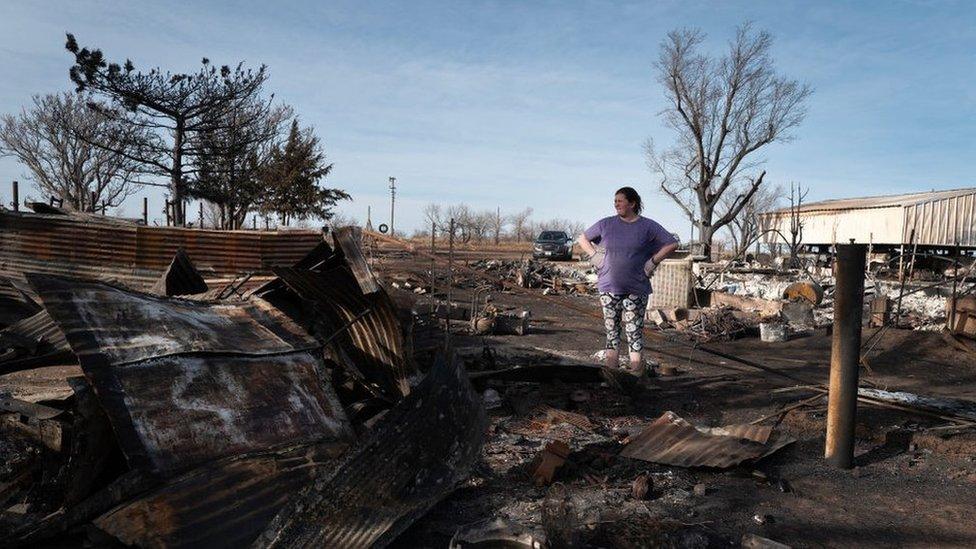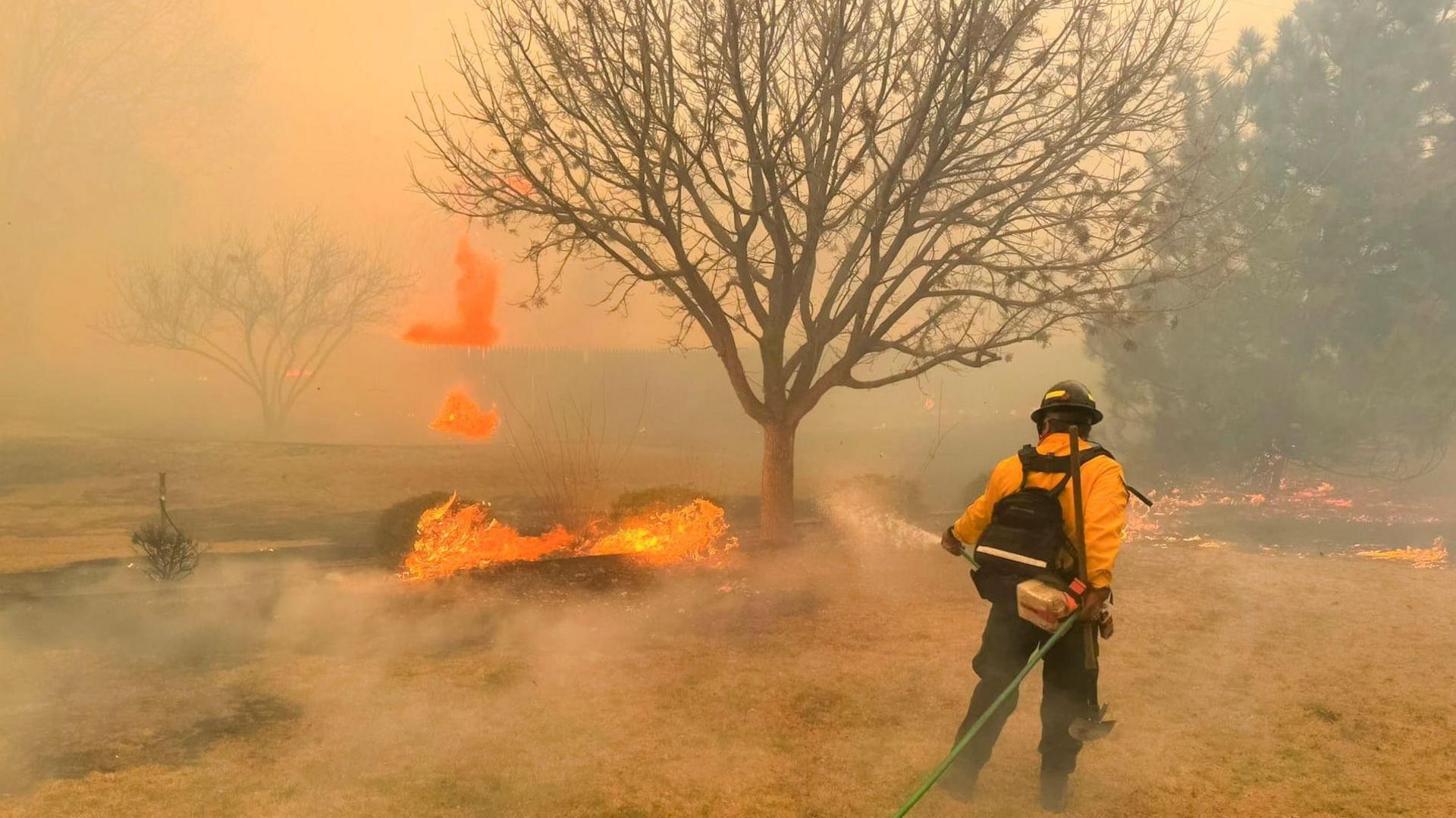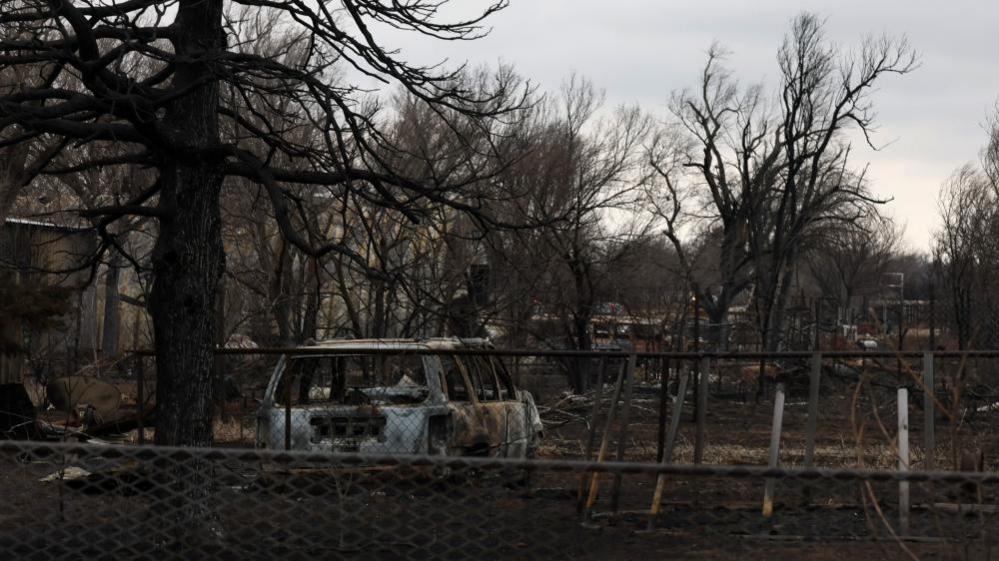Power company admits role in igniting Texas wildfire
- Published

The Smokehouse Creek wildfire burned through more than one million acres of land, turning homes into ash
A power company said its equipment likely ignited a massive wildfire in Texas last week that left two people dead and killed thousands of cattle.
But Xcel Energy has dismissed allegations it was negligent in maintaining its electric lines, as claimed in a lawsuit.
The Smokehouse Creek fire burned over 1.1 million acres of land, making it the largest in Texas history.
Officials say hundreds of firefighters are still working to douse it down.
"Xcel Energy acknowledges that its facilities appear to have been involved in an ignition of the Smokehouse Creek fire," the company said in a statement on Thursday. "Xcel Energy has been cooperating with the investigations into the wildfires and has been conducting its own review."
The company's statement comes after a Texas homeowner, whose home was destroyed by the blaze, sued the utility last week, alleging that a power pole owned by the company fell and started the fire.
Melanie McQuiddy claimed in her lawsuit that the pole was in bad shape due to poor maintenance before it fell.
"Xcel will pay for every dollar that its wildfire has caused," her lawyer, Mikal Watts, told Reuters.
At least 64 homes were destroyed in the fire, the company admitted, and it encouraged people who lost livestock or property to submit claims directly to the utility.
The Minneapolis-based company provides power and natural gas to parts of Texas, as well as seven other US states.
In addition to structural damage and loss of cattle, two people were confirmed dead as a result of the fire, which erupted in the Texas panhandle last month and continues to burn. As of Wednesday, officials say the fire is 44% contained.
Watch: Fire engine drives through raging Texas wildfire
Firefighters are also working on another smaller fire - the Windy Deuce blaze - though Xcel Energy said it does not believe this fire was started by its infrastructure.
Xcel Energy also faces nearly 300 lawsuits in Colorado, according to the Denver Post, external, claiming the utility was behind the 2021 Marshall wildfire - the most destructive in the state's history.
Related topics
- Published29 February 2024

- Published1 March 2024
